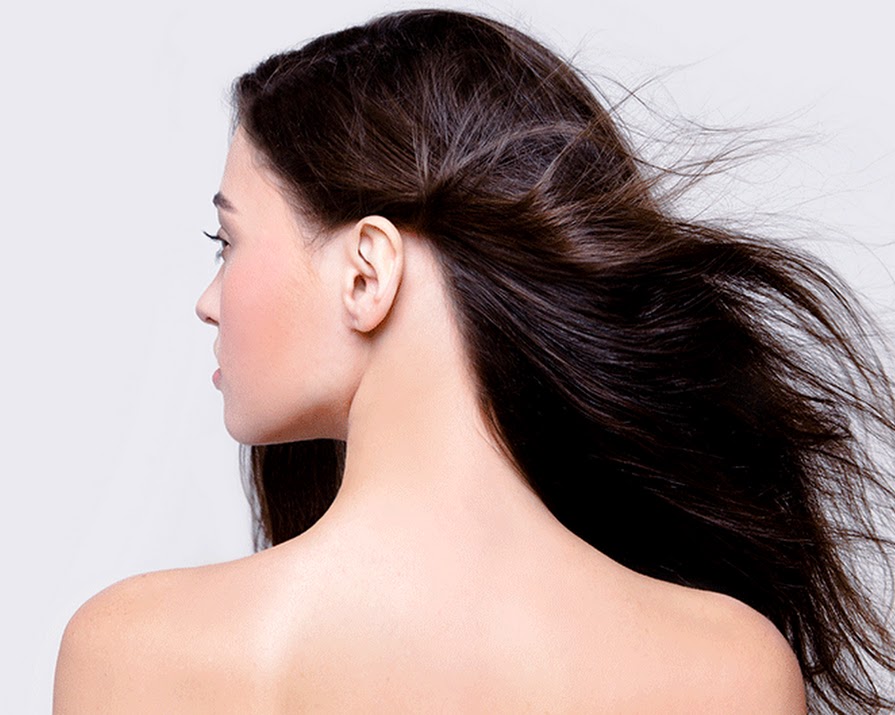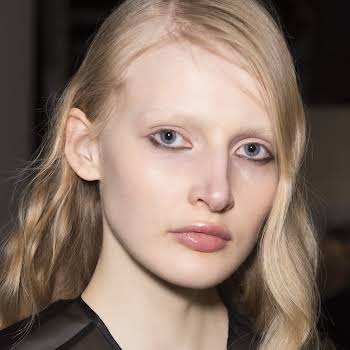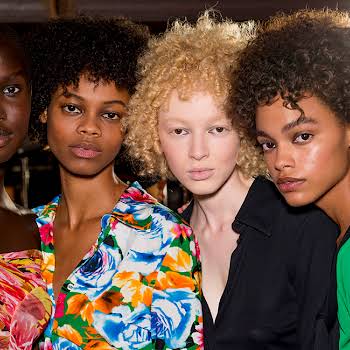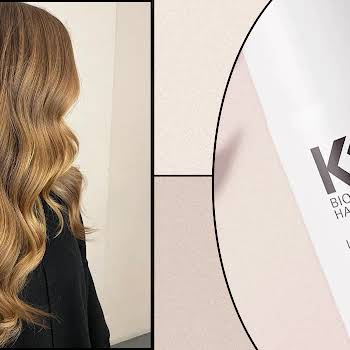Sponsored
It’s time to talk about female hair loss: common myths debunked by an expert
Sponsored By

By Eva Hall
26th Mar 2020
26th Mar 2020
Sponsored By

With almost half of women over 65 suffering from female pattern hair loss, according to the NHS, it’s time to break the stigma. Dr Omar Milhem, medical director at Pharma Medico and hair loss expert, separates the facts from friction when it comes to hair loss.
For many of us, our hair is a comfort blanket, always there to make us feel better.
Our hair style has a lot to do with our perceived notions of beauty, and is often the first thing someone will comment on if you’ve changed your colour or had a new cut.
But there’s a secret women the world over are keeping to themselves, and that’s that around 60% of us will suffer from some type of hair loss within our lives. This isn’t something you chat about with your girl friends over coffee, it isn’t a broken nail or even botched lip fillers. It’s something we’ve been covering up and suffering about in silence.
But no more, says Dr Omar Milhem, a qualified PhD pharmacist with experience in research-based pharmaceutical sciences and pharmacology. He’s here to answer some common questions on hair loss, and encourage women to take control of this silent issue.

Around 60% of us will suffer from some type of hair loss within our lives. Photo: Getty Images
Is hair loss normal?
It’s perfectly normal to experience some level of hair loss every day. Our hair grows in a defined cycle, undergoing a 3-5 year growth phase, before going through a brief transition and then shedding, before a new hair takes its place. Every hair on our head goes through this cycle, but they do it all in their own time frame, so at any given time around 85-90% of our hair is actively growing, while the remaining 10-15% is either in the transition or shedding phases of the cycle.
As a result, it’s perfectly normal to lose around 100-150 hairs each day, most of which will shed unnoticed as we go about our daily business.
Does this happen with age?
In the majority of hair loss cases, age is not deemed to be the predetermining factor. In fact, hair loss is usually symptomatic of something else that is happening in the body such as a health condition such as diabetes or thyroid problems, genetics or as a response to an external stimulus such as stress. In a 2016 Nourkrin consumer survey, 58% of women suffering from hair loss pinpointed stress as the cause of their problem.
Does a vitamin B deficiency cause hair loss?
Research has shown that there needs to be a significant level of vitamin B deficiency before it causes hair loss. We’re lucky in the western world that, on the whole, our diet is healthy and balanced and contains sufficient vitamins, minerals and nutrients such as protein. As a result, only around 2% of women who suffer hair loss do so as a result of vitamin b deficiency, it is far more common for factors such as illness and medication or even stress to cause hair loss.
Does the amount of times I was my hair contribute to hair loss?
Washing your hair regularly helps to keep your scalp clean and provides a good environment for the hair follicles to function optimally the notion that frequent washing strips the hair of essential oils and changes the scalp environment is a myth.
It is natural to see some hair fall when you wash your hair, but this is due to those hairs which are naturally shed as part of the completion of the hair growth cycle coming loose, rather than as a direct cause of the process of washing your hair. You simply notice them more as they are wet and will cling rather than falling unnoticed as they would if they were dry.
Does styling my hair cause hair loss?
This is true. Being overly harsh with your hair can cause breakage, dryness and hair loss. Excessive use of heat styling tools and overly frequent use of harsh chemical treatments such as bleach can have a detrimental effect on the health of your hair, potentially causing it to dry out and become prone to breakage. Tight hairstyles can put a strain on the hair root and wearing these styles too often can cause hair to break at root level.
Instead, try leaving your hair to dry naturally as often as possible and if you’re wearing it up in between washes, opt for a softer style, captured with material bands or loose grips as these are often gentler on the hair. If you really must use a dryer, use the lowest heat setting and always keeping the dryer moving over the hair, rather than concentrating on one spot.
Do hair loss treatments work?
Most people focus on the topical treatments such as shampoos, but to address a disruption to the hair growth cycle you need to use a product which can treat the problem systemically, which means taking a product orally so that it can deliver benefits through the blood supply.
While multivitamin products are unlikely to help address hair loss (only around 2% of hair loss cases are as a result of a B vitamin deficiency), using a product which contains the essential biologically active molecules which help hair to grow (called proteoglycans) can help to rebalance the hair growth cycle and promote hair growth.
Many people also make the mistake of wanting immediate results and give up on treatments when they don’t see results within a couple of weeks. Hair is very slow growing and, just as the factors which disrupted hair growth can take time to show in the first place, so too can the beneficial effects of any treatment. Typically, hair only grows a maximum of around ¼ to ½ an inch each month, so the beneficial effect of treatment can take anywhere between 3 and 6 months to become fully visible.

So there you have it. There is no quick fix in combating hair loss, but a course of treatment such as Nourkrin over a three to six-month period can help restore your once luscious locks.
For more information on Nourkrin treatments, see here.
Main photo: Getty Images























